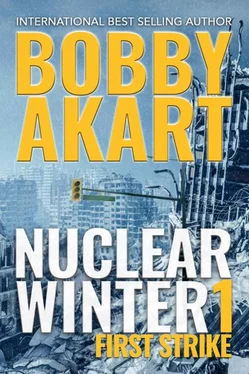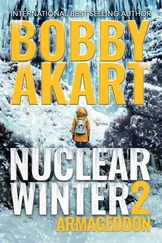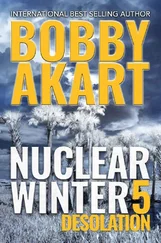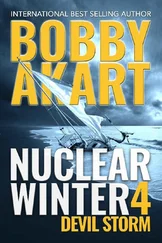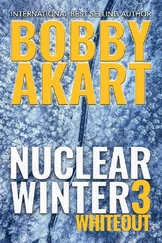What hadn’t changed over the years was the journalists’ zest for reporting the news. The desire to use their intuition, or hustle, as necessary to seek out the facts considered newsworthy and to break the story was the same today as it was in 1950.
The newsrooms, therefore, had a similar sense of urgency and excitement as decades past, only the furnishings and tools used by journalists had advanced in the twenty-first century. Telephone desk sets were gone. Typewriter keys clacking coupled with the ding of the return handle being engaged disappeared. Calls for the copy boys were no longer necessary. Everything was digital.
But the feeding frenzy during a breaking news story remained the same. Back in the day, the news came in mostly by telephone, called in by legmen , reporters who scoured the town for stories. Their calls were rerouted to one of the city editors, who, depending on the urgency or sexiness of the story, would reassign it to a rewrite man. He was the guy who got the byline, credit for the article, even though it had been scooped by someone else.
All of this had changed with technology.
Peter had scheduled two interviews that morning to discuss what he’d experienced in Abu Dhabi. However, that, as they say, was yesterday’s news. In today’s twenty-four-hour news cycle, an ordinarily newsworthy event just a few hours ago could easily be forgotten and displaced with a much sexier story in the present. Such was the case as the mutual nuclear attacks between Iran and Israel overtook any other story the reporters at the Washington Times were working on.
Every desk in the Washington Times newsroom was filled. The energy was at a fever-pitch as reporters called sources and others banged away on their computers, conducting research. These were the hired guns who continued to work tirelessly to produce the second largest newspaper by circulation in Washington. Only the Washington Post had a larger subscriber base. The journalists who occupied these desks were irreverent, brash, and above all, competitive, even with one another. It was all about making a name for themselves, a direct result of the success of Bob Woodward and Carl Bernstein’s notoriety achieved during their investigation of President Richard Nixon.
All of their cutthroat tactics were designed to become known. Every attempt to break the news was in furtherance of their insatiable desire to pursue a Pulitzer. None of their tactics gave them the notoriety and respect Peter Albright had achieved by being at ground zero of the terrorist attack in Abu Dhabi. However, fame was fleeting, and his fifteen minutes had burned up quickly.
Because the secretary of state was involved in White House discussions all day, Peter was able to touch base with his boss at the Times .
“Peter, grab a seat,” Doug Beasley said without looking away from his computer monitor. “Glad you’re back in one piece.”
That’s it? Peter had been hoping for a little better pat on the back for his efforts in Abu Dhabi than the one Beasley was offering.
“Thanks,” was all Peter could think to say in response.
“Peter, things are developing rapidly after the nukes started flying. There’s an angle I want you to run down for me.”
“Um, I’ll do my best, but the secretary is expected to be at the White House all—”
“It doesn’t involve your coverage of her movements. It has to do with her political ideology.”
Peter was genuinely puzzled. “Um, sure. But shouldn’t I focus on the Middle East picture rather than her future political aspirations?”
Beasley looked away from his monitor for the first time. He peered over his glasses at Peter, who was casually dressed in a long-sleeve, striped polo shirt and khakis. It was his uniform of choice when not in the State Department press room representing the Times .
“I’m talking about her political ideology as it pertains to the use of nuclear weapons. She’s been known to be a dove in these respects, always pushing the president in a direction that does not involve military conflict.”
Since the founding of the American republic, doves were often associated with a political ideology promoting peace and pacifism. Politicians of this ilk were opposite of the hawks, who favored war and a continuation of any existing conflicts as opposed to other, nonmilitary solutions.
“Sir, her opinions are well known and in line with the president’s. I can’t imagine he’d bring her into his cabinet if it were otherwise.”
Beasley continued. “I’m hearing there is an exception.”
“An exception as in they’re doves ninety-nine percent of the time except for …?” Peter allowed his question to dangle in the air.
“The DPRK,” Beasley replied flatly. “There is something in both of their backgrounds that indicates they might take a different approach toward North Korea than Iran, in the present circumstances.”
“Why would they have a hard-on for Kim? Are you thinking it’s something personal? Since Helton’s election, the Hermit Kingdom has been very quiet.”
“Too quiet, don’t you think?” asked Beasley. “Lying low to the point of being obvious. Like they’re scared.”
“I suppose, sir,” said Peter. He didn’t want to argue with his boss. He was getting the impression he was being assigned busywork as some form of punishment. Regardless, he’d do as instructed.
Beasley removed his glasses and leaned forward so his elbows rested on his desk. “Listen, Peter. This is a hunch of mine that doesn’t need to be shared with anyone else in the newsroom. I’ve tasked you with it because you have connections at State, the Pentagon, and the White House.
“Something in my gut is screaming at me regarding the administration’s treatment of North Korea. The whole dynamic is off-kilter. Will you look into it and see what you uncover?”
Peter sat a little taller in his chair now that he realized he wasn’t being sidelined and relegated to the bench. “I’ll jump on it right now.”
Sunday, October 20
Driftwood Key
Hank walked onto the beach that morning, as was customary. He was in a pensive mood as he strolled along the water’s edge, where the calm, gently lapping waves barely rose up the slight incline. He followed footsteps that had been left in the sand by another early riser. His bare feet were larger than the other beach walker that morning. He picked up the pace to see who it was.
Up ahead, he caught a glimpse of Erin Bergman. She was wearing her swimsuit and her white linen coverup. He hadn’t seen her the day before, even assuming, until later told otherwise, that she’d returned to Washington. He was anxious to speak with her about the nuclear exchange.
Hank glanced ahead of her as he approached. He didn’t mean to startle her, but she was about to encounter a rarity in the Keys, one that might shock her.
“Erin, wait,” he announced with a tone of caution.
She swung around. “Um, hi, Hank. Is everything all right?”
“Yes, just don’t move.”
Erin stopped in her tracks and tilted her head with a puzzled look on her face. He caught up to her with his hands spread apart, waving them up and down as if he wanted her to remain calm.
“Slowly. Back away from where you’re standing,” he instructed as he held his hand out to her. She took it and carefully picked up her feet, which had sunk somewhat in the wet sand. Her first instinct was to look around her feet, presuming there was something dangerous nearby. She couldn’t see it, but she followed Hank’s suggestion nonetheless.
Still holding her hand, he led her up the slope a few feet away from the water’s edge. “This is your lucky day,” he said with a smile. He hesitated to let go of her hand. It was soft and warm. It felt right. But he did and walked just to where the wave line was created in the wet sand.
Читать дальше
